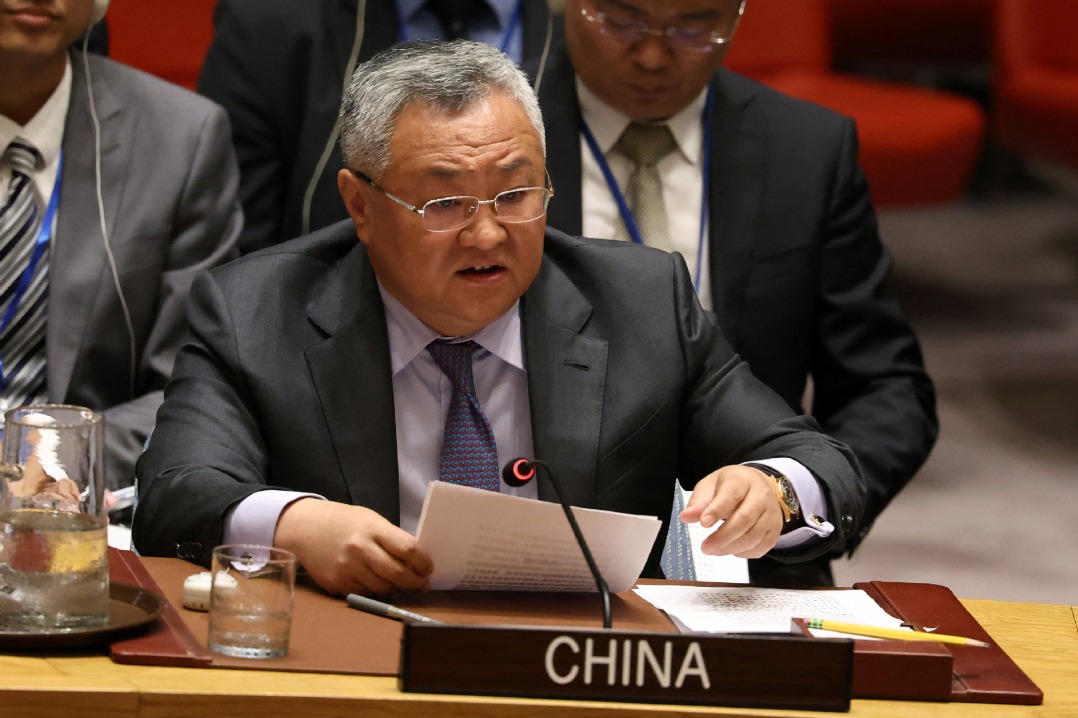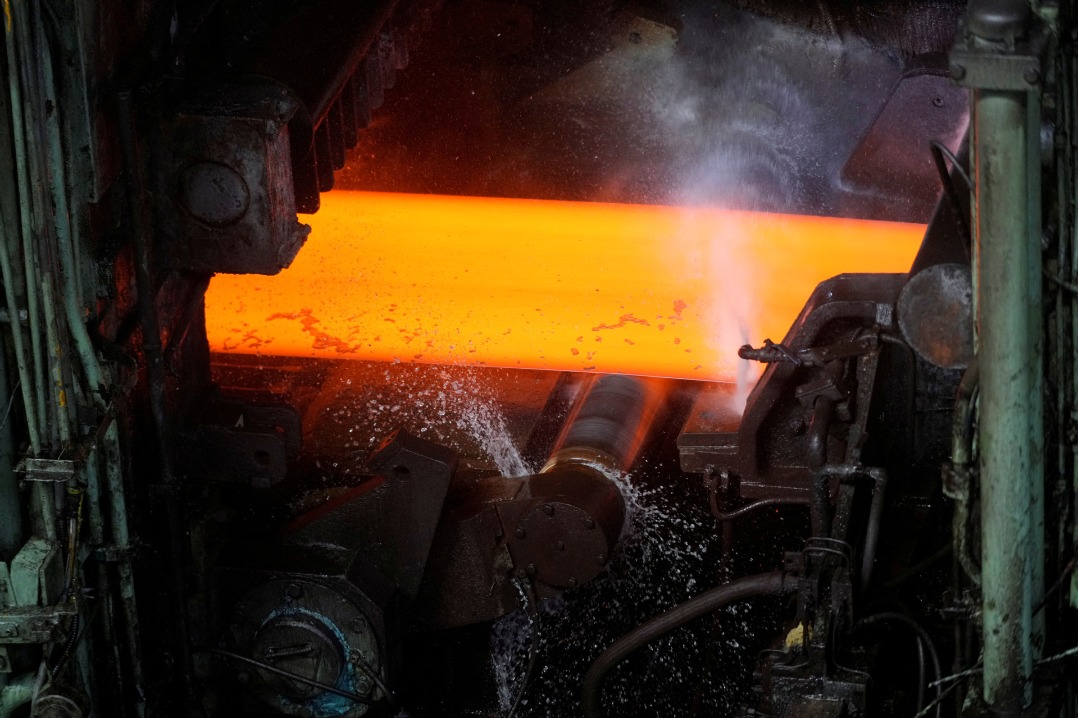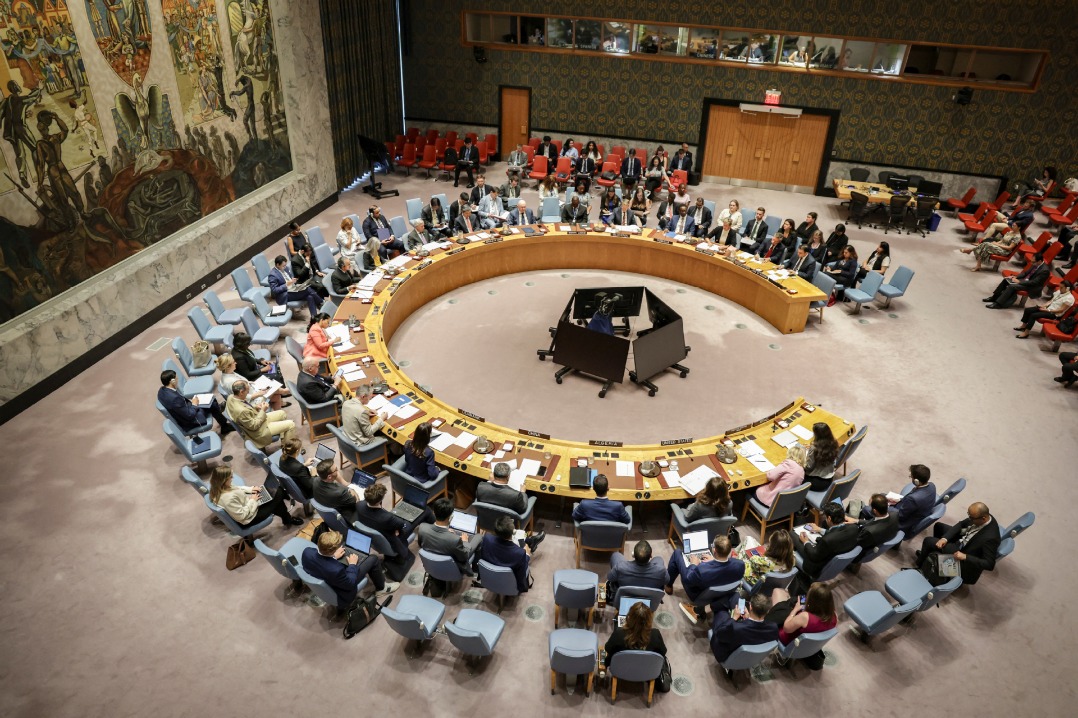US Northwest braces for foreign-waste ban

The US recycling industry, especially in the Pacific Northwest, is struggling to come to grips with China's planned ban on accepting foreign recyclables starting in March.
In July, China announced that it would ban global shipments of 24 varieties of solid waste to protect the environment and improve public health. China is reviewing comments on a draft proposal of the ban that were submitted by Dec 15. A final decision could affect the specifics of the ban.
To save on the cost of raw materials, Chinese manufacturers reuse paper, plastics, metal, and other materials to make a wide range of products such as cell phones and coffee cups. In 2013, China placed a 10-month restriction - not a ban - on recyclables to improve the quality of imported waste.
Recyclables and waste are the sixth-largest US export to China. In 2016, China imported almost half of the US' commodity-grade scrap metal, paper and plastic and paid $16.5 billion for it, according to the Washington-based Institute of Scrap Recycling Industries (ISRI).
For the US recycling industry - especially the Northwest, which is lacking in plants to clean and sort waste - the proposed ban would mean losing money from China and finding places to put the recyclables China won't accept.
"I think this time what we are hearing from all our sources is that this [the ban] looks like it might be the new normal," said Anne Germaine, a senior director at the National Waste and Recycling Association. "Rather than the buyers [in China] dictating what qualities they are willing to accept, the government through its customs enforcement and crackdown facilities in China might be the ones determining what standards are to be adhered to."
Germaine said that the impact of the proposed ban is already being felt. Buyers in China of recyclables aren't buying as they wait for licenses from the government for 2018 that will tell them the quantity of recyclables they can import from the US. Prior to the planned ban, it was relatively routine to get a license, she said.
"Our industry is on tenterhooks right now because of the impact on these high-value scrap commodities, which is what our members almost only send to China," said Adina Renee Adler, a senior director with the ISRI.
Oregon-based waste collector Rogue Waste Systems is a group of companies that has felt the fallout from the planned ban. Laura Leebrick, Rogue community and government affairs manager and industry lobbyist, said the companies that it sends its recyclables to have started to slow down their processing line to meet the higher-quality standards being imposed by China.
Rogue Waste Systems went to Oregon's Department of Environmental Quality to seek help in managing the recyclable materials they were forced to store outside after using all indoor capacity. The agency agreed to allow about a dozen waste collectors like Rogue to put the excess material in landfills, said Peter Spendelow, an environmental specialist at DEQ.
"These [developments] are making it pretty much so that China will not be serving as a market for material and China has already cut back, Spendelow said, and "we've already seen processors trying to find other markets."
Spendelow said US waste processors have lacked the incentive to clean up recyclables, which are often mixed with contaminants, because buyers in China pay by weight. The dirtier the recyclables, the more money they make.
China has initially proposed a ban on post-consumer plastic and mixed papers and a 0.3 percent maximum contamination level for most other recyclable materials, according to David Biderman, CEO of the Maryland-based Solid Waste Association of North America. While the proposed ban remains unchanged now, the contamination level restrictions were eased to 0.5 percent in November, after pushback from the US recycling industry.
The ban might create more environmental problems for China if Chinese manufacturers are forced to use more virgin materials, which Spendelow said require more energy to make and can cause more pollution, Biderman said.
Some in the US recyclables industry argue that China has the right to initiate the ban, but that it's not distinguishing between waste and recyclables when it refers to yang laji, or "foreign waste".
"I know that China refers to it as waste, but we do not view it as sending our waste to China," Germaine said. "Our waste is managed within the US at our landfills or waste-to-energy facilities. These are recyclables that are commodities and have value."
aaronhagstrom@chinadailyusa.com


































